ISO Partner Checklist: How to Avoid Fake ISO Providers and Bad Advice

ISO partner choice is not about picking the “one true” route to certification – it is about choosing something that is honest, fit for purpose and good value for your money.
For some organisations, that means going down the fully accredited, IAF-recognised route (for example, via a UKAS-accredited certification body). For others, a non-IAF / non-accredited certificate is absolutely fine, because their customers are not asking for a specific accreditation and the main goal is internal improvement or a bit of extra credibility.
There is nothing inherently wrong with non-IAF certification.
The problems happen when:
- Providers are vague or misleading about what they are selling.
- Businesses think they have “the same as everyone else” when they actually do not.
- Certificates are presented as something they are not – that is when we move into the territory of fake ISO providers.
This article is about helping you make an informed decision with your ISO partner: understanding your options, the pitfalls, and how to get value for your money – whichever route you choose.
Why Your ISO Partner Choice Matters (Even If You Don’t Need Accreditation)
When a customer or tender first asks for “ISO 9001” or “ISO certification”, it is easy to assume all certificates are equal. You go online, find an ISO partner, get a quote and hope that having a piece of paper with “ISO” on it will tick the box.
Sometimes it will. Sometimes it will not.
Your choice of ISO partner matters because it shapes:
- What you are actually buying – IAF-recognised accredited certification, non-accredited certification, or something vague in between.
- Where your certificate will be accepted – only with some customers, or broadly across tenders and supply chains.
- The value you get from the system – a genuine management tool or just a document set no one uses.
There is absolutely a place for non-IAF / non-accredited certification, especially when:
- Your customers do not explicitly require accreditation.
- Your priority is internal improvement rather than external recognition.
- You are at an early stage and want to start simple and build up over time.
In those cases, a non-accredited route can deliver real value at a sensible cost. The key is knowing what you are getting and not over-selling it to others.
Understanding the Landscape: IAF vs Non-IAF vs “Fake”
To make sense of your options, it helps to separate three different concepts.
1. IAF-Recognised, Accredited Certification
- The International Accreditation Forum (IAF) is the global network for accreditation bodies.
- In the UK, UKAS is the national accreditation body and member of the IAF.
- Certification bodies accredited by UKAS (or other IAF members) provide certificates that are widely recognised in formal supply chains and regulated sectors.
When this route makes sense:
- Your tender documents specifically say “UKAS” or “IAF-recognised” certification.
- You work with larger corporates or public bodies who are strict about accreditation.
- You want the highest level of external assurance and recognition.
2. Non-IAF / Non-Accredited Certification (Legitimate but Different)
Non-IAF or non-accredited certification means:
- The certification body is not accredited by an IAF member such as UKAS.
- They may still operate professionally and ethically.
- The certificate may be accepted by many customers, but not necessarily all.
Used honestly, this is a perfectly valid option. Many organisations:
- Want structured improvement and an external check.
- Have customers who only ask for “ISO” in general terms, with no mention of accreditation.
- Prefer a more cost-effective or flexible route.
At RKMS, we also offer non-IAF / non-accredited certification for exactly these situations. We are not against it – we simply believe you should understand what it is and where it will (and will not) be accepted.
3. Fake or Misleading ISO Providers
The real danger comes from providers who:
- Dress up non-accredited / Non-IAF -accredited certification as “equivalent to” or “just the same as” IAF-recognised routes.
- Use confusing logos, wording or graphics that look like official accreditation marks but are not.
- Imply that their certificates are “universally accepted” when this is not true.
This is what most people mean when they talk about fake ISO providers: not every non-IAF route, but those who misrepresent what they are selling.
A good ISO partner will be clear about which of these three categories you are in and help you choose consciously.
How to Decide Which Route Is Right for You
Before you choose an ISO partner, step back and ask a few practical questions.
Question 1 – What Are Your Customers Really Asking For?
Look at:
- Tender documents
- Framework or supplier requirements
- Key customer contracts
Are they asking for:
- “ISO 9001” with no mention of accreditation?
- “ISO 9001 certified by a UKAS-accredited certification body”?
- “Certification from an IAF-recognised provider”?
If there is no reference to UKAS or accreditation, a non-IAF certificate might be entirely acceptable – and a sensible way to start. If they are explicit, you may need an IAF-recognised route.
An honest ISO partner will help you interpret these requirements rather than automatically pushing you to the most expensive option (or cheapest).
Question 2 – What Is Your Primary Objective?
Be honest about why you are doing this:
- To win or keep specific contracts with strict requirements?
- To improve how you work (consistency, risk control, professionalism)?
- To support growth and reputation more generally?
If your main goal is internal improvement plus an extra bit of credibility, a well-designed non-IAF certification route might be exactly what you need. If you are competing in highly regulated or heavily audited environments, IAF-recognised accreditation may be the better investment.
Question 3 – What Is Your Budget and Timeframe?
Budget and timing always matter. A good ISO partner will:
- Show you how cost and timescale differ between IAF and non-IAF routes.
- Explain what can realistically be done within your constraints.
Help you avoid false economies (for example, very cheap solutions that deliver little real value).
What to Expect from a Good ISO Partner (Whatever Route You Choose)
Whether you go for IAF-recognised accreditation or non-accredited certification, a reliable ISO partner should have some consistent qualities.
1. Transparency About What You Are Buying
Your ISO partner should:
- Clearly state whether the certification route is IAF-recognised or non-accredited.
- Explain, in plain English, what that means for recognition and acceptance.
- Help you capture this in your own marketing and tenders so you do not over-claim.
There is no problem with a non-IAF certificate that is honestly described. The problem is when it is presented as something it is not.
2. A Practical, Business-Focused Implementation Approach
Regardless of the certificate type, your ISO partner should:
- Learn how your organisation actually works.
- Use the standard as a framework for real improvements, not just paperwork.
- Help you create processes and records that people can actually follow.
Whether you are audited by an IAF-recognised body or a non-accredited one, a well-implemented system will always add more value.
3. Guidance on Pitfalls and Limitations
A trustworthy ISO partner will also talk you through potential pitfalls, for example:
- “This non-IAF certificate may not be accepted by X type of customer.”
- “If, in two years’ time, you want to move to a UKAS-accredited route, here is how that transition might work.”
- “If you describe your certification in this way in tenders, you could be misunderstood.”
That kind of honest, grown-up conversation is a good sign you are in safe hands.
Red Flags: When to Worry About an ISO Provider
You do not need to be suspicious of every non-accredited ISO partner. But you should be cautious when you see things like:
Vague or Evasive Answers
If you ask, “Is this certificate IAF-recognised or non-accredited?” and the answer is:
- Vague (“It’s globally recognised, don’t worry about it”), or
- Evasive (“That’s very technical; it doesn’t matter”)
…then be careful. A good ISO partner should welcome straightforward questions.
Over-Promising Acceptance
Be wary of claims such as:
- “Our non-accredited certificates are accepted everywhere.”
- “It’s exactly the same as a UKAS certificate.”
- “You’ll never be challenged on this.”
No one can guarantee universal acceptance. Honest providers will talk in terms of likelihood and fit, not absolutes.
Misleading Logos and Language
If the provider:
- Uses logos that look similar to accreditation marks but are not the same.
- Buries key information in tiny print while shouting “accredited” language in headlines.
- Avoids naming the actual certification body involved.
…then it is worth digging deeper or walking away.
A Simple Process to Vet Your ISO Partner
Here is a practical, step-by-step way to check any ISO partner, whether they offer IAF or non-IAF routes.
- Ask what type of certificate you will receive.
- “Is it IAF-recognised (for example via a UKAS-accredited body), non-IAF-accredited or non-accredited?”
- “Is it IAF-recognised (for example via a UKAS-accredited body), non-IAF-accredited or non-accredited?”
- Ask where they expect it to be accepted.
- “Based on your experience, in what types of tenders or supply chains is this route normally accepted, and where might it be challenged?”
- “Based on your experience, in what types of tenders or supply chains is this route normally accepted, and where might it be challenged?”
- Check how they describe it in writing.
- Their proposal should not over-claim or use uncertain wording like “as good as accredited” without context.
- Their proposal should not over-claim or use uncertain wording like “as good as accredited” without context.
- Review their implementation approach.
- Do they talk about understanding your business, engaging staff and improving processes – or just “getting the badge”?
- Do they talk about understanding your business, engaging staff and improving processes – or just “getting the badge”?
- Ask about future options.
- “If we start with a non-IAF certificate and later need an IAF-recognised one, how easy is that transition?”
- “If we start with a non-IAF certificate and later need an IAF-recognised one, how easy is that transition?”
- Ask about the length of the contract.
- Clarify how long you are tied in for, whether there are auto-renewals, and what the notice period is.
- Check if support, audits and any annual fees are clearly set out for the full contract term.
- Be cautious of long contracts with unclear break clauses or charges for exiting early.
- Clarify how long you are tied in for, whether there are auto-renewals, and what the notice period is.
A strong ISO partner will be comfortable answering all of these.
Common Mistakes to Avoid
When you are weighing IAF vs non-IAF options with an ISO partner, try to avoid these traps.
Mistake 1 – Assuming Accreditation Is Always Essential
Sometimes organisations pay for a fully accredited route when:
- Their customers never asked for it.
- A non-IAF route would have met their needs at lower cost.
- Their real focus is internal improvement.
There is no shame in starting with a non-accredited certificate if it genuinely fits your situation.
Mistake 2 – Assuming Accreditation Never Matters
On the flip side, some businesses buy a non-IAF certificate and only discover later that:
- A key client insists on an IAF-recognised certificate.
- A public sector framework requires UKAS-accredited certification.
Again, the issue is not that non-IAF certificates are “bad” – it is that they were chosen without understanding future requirements.
Mistake 3 – Not Asking Your ISO Partner the Hard Questions
The easiest way to avoid problems is simply to ask:
- “What exactly are we getting?”
- “Where do you see this being accepted?”
- “What are the limitations?”
If your ISO partner cannot or will not answer, consider that a warning sign.
How RKMS Helps You Choose the Right Route (Not Just the Most Expensive)
At RKMS, we work as an ISO partner for organisations across the UK, and we deliberately support both:
- IAF-recognised routes (Via our marketing partner)
- Non-IAF / non-accredited certification routes where they are appropriate.
Our philosophy is simple:
- Educate first – help you understand the options and the trade-offs.
- Match the route to your reality – customers, sector, risk profile, budget.
- Protect your reputation – make sure you describe what you hold accurately and confidently.
We want you to get value for your money, whether that is through a fully accredited, widely recognised certificate or a more flexible, non-accredited option that does exactly what you need it to do.
Free ISO Provider and Certificate Check
If you are already speaking to an ISO partner – or you already hold a certificate and are not quite sure what it really is – we can help.
Send us the details of your current or proposed ISO provider, or a copy of your certificate, and we will review it for you – free of charge.
We will:
- Clarify whether it is an IAF-recognised, Non-IAF accredited or non-accredited route.
- Highlight any potential pitfalls or mismatches with your customer expectations.
Suggest practical next steps so you can make an informed decision from here.
Your Next Step
Whether you are leaning towards an IAF-recognised route or a non-IAF / non-accredited certificate, the most important thing is that you:
- Understand what you are buying.
- Know where it is likely to be accepted.
- Feel confident you are getting value for your money.
A good ISO partner will make those conversations easy, honest and transparent.
If you would like a second opinion on a quote, a provider or an existing certificate:
We’ll verify your provider for free — protect your business from bad ISO advice.
Share
Book a Free Consultation
Get free advice and guidance tailored to your exact business needs
Related Resources

ISO Partner Checklist: How to Avoid Fake ISO Providers and Bad Advice
ISO Partner Checklist: How to Avoid Fake ISO Providers and Bad Advice ISO partner choice is not about picking the “one true” route to certification

Meet the Inspiring Family Behind RKMS: People, Passion and Purpose
Meet the Inspiring Family Behind RKMS: People, Passion and Purpose When you work with RKMS, you’re not just hiring a consultancy — you’re joining a
Book a Free Consultation Consultation Consultation Consultation
Get free advice and guidance tailored to your business needs





